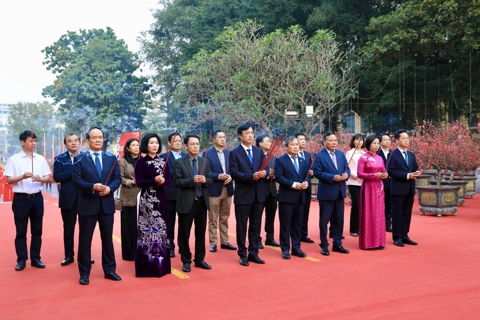Equipping training approaches for well-prepared digital transformation in Vietnam
THE HANOI TIMES — Hundreds of disadvantaged Vietnamese young people have equipped with visual arts training thanks to a year-long project funded by international firms and organizations to empower youth to secure their careers in the digital economy.
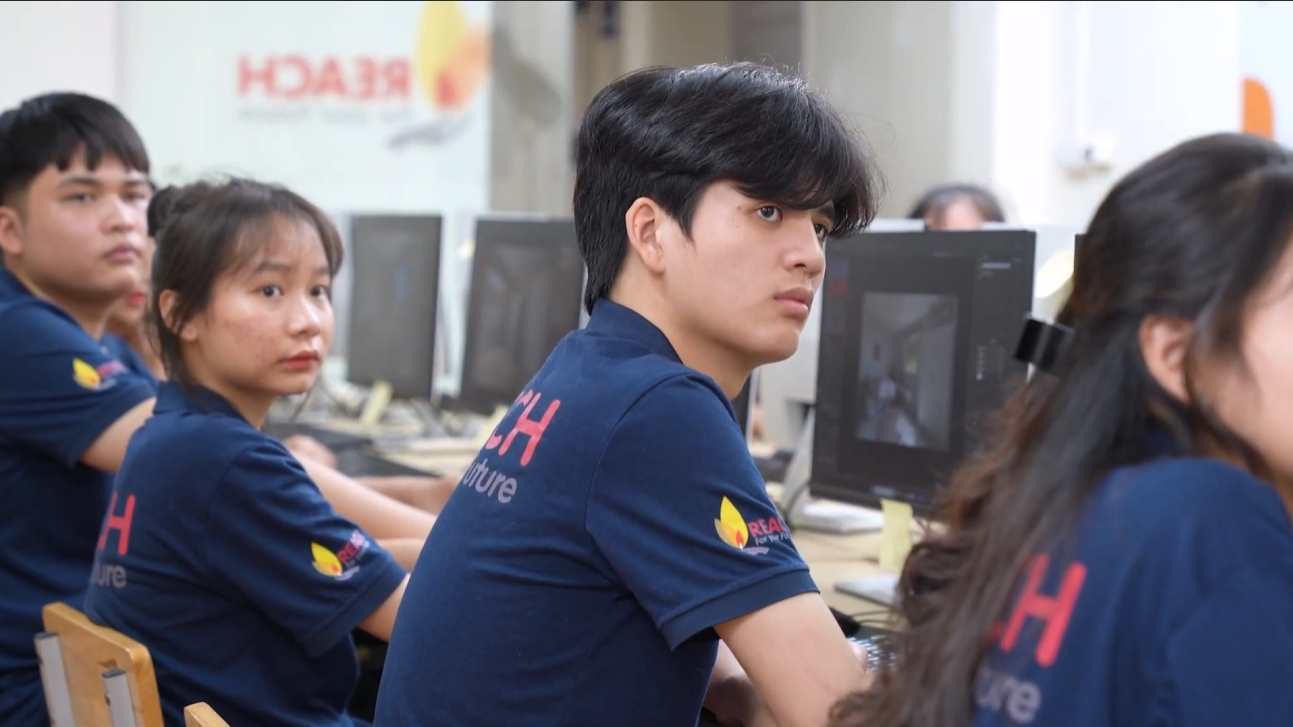
Truong Minh Phuc, student at 2D Graphic Design Class K58, REACH Institute. Photo: Linh Pham/The Hanoi Times
Truong Minh Phuc, student at 2D Graphic Design Class K58, REACH Institute, is among more than 200 learners benefiting from “Transformational Skilling for a Smarter Future in Vietnam” project funded by Lenovo and implemented by Plan International in partnership with Hanoi-based REACH Institute.
With sponsorship from Lenovo Group under the US$1-million TransforME Grant Round, the project, lasting from April 2024 to March 2025, focuses on training courses on 2D, 3D Graphic Design, and Digital Marketing, and equipping the learners with soft skills and employment. It helps disadvantaged youth, particularly women, with short-term vocational training, job placement, and stable income, aiming to reduce the gender gap in the information technology sector.
In a video conversation with his mom, who is hearing-impaired and not influent in language, Truong Minh Phuc was happy to talk about his job that he is confident to earn money to feed himself and take care of his mother.
Phuc, who loves drawing and becoming an architecture or graphic designer, has equipped with graphic design from experienced teachers, along with improved communication skills, presentation abilities, and overall confidence.
“Thanks to the project, I, along with many other disadvantaged young people, have had the opportunity to pursue our dreams. I’m incredibly grateful that this project has helped many people like me overcome their struggles and move forward in life,” Truong Minh Phuc told The Hanoi Times. He said in addition to the lessons at school, support from the project’s donors and partners helped him cover living expenses and tuition fees.
Ngo Van Quyet, 2D Graphic Design Instructor, REACH Institute, shared that knowledge at school and soft skills have helped students confident in communicating with others. They develop the self-assurance needed to apply for jobs in companies, helping them improve their income over time. “I believe the training course and extracurricular are essential in today’s digital transformation era.”
The school introduced Phuc to some companies and several recruiters came to hire him and his classmates. As a result, Phuc got the job at NPN Imaging Company where he has applied many tasks, such as editing real estate photos using Pen tool, Magic, Mask Out, and more.
Le Tran Thai Hoa, HR Manager at NPN Imaging Company, said in an interview with The Hanoi Times that she highly appreciate the students trained at REACH for their strong technical foundation and a good ability to adapt to technology and innovation.
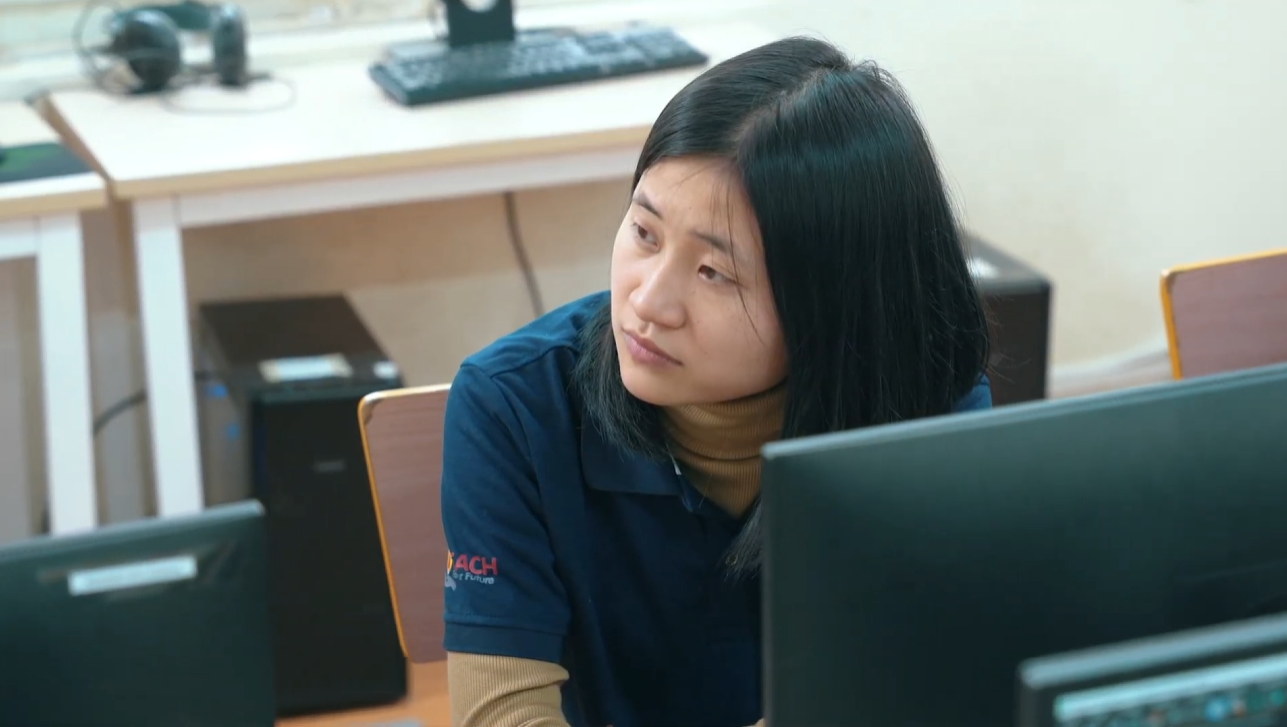
Nguyen Thi Luyen, a student at 3D Graphic Design Class K59, REACH Institute. Photo: Linh Pham/The Hanoi Times
Nguyen Thi Luyen, a student at 3D Graphic Design Class K59, REACH Institute, said she chose to study 3D Design as this field is mainly for men and few women pursue it. So she believed that any career should be open to everyone, regardless of gender.
After hearing about the funded project, Luyen reached out to REACH as she believed that it was an opportunity for a brighter future. “After studying at REACH, I have gained hands-on experience and can work in interior and exterior visualization while soft skills classes have helped me improve my teamwork skills, confidence, and understanding of gender issues and equality in the society,” she spoke to The Hanoi Times.
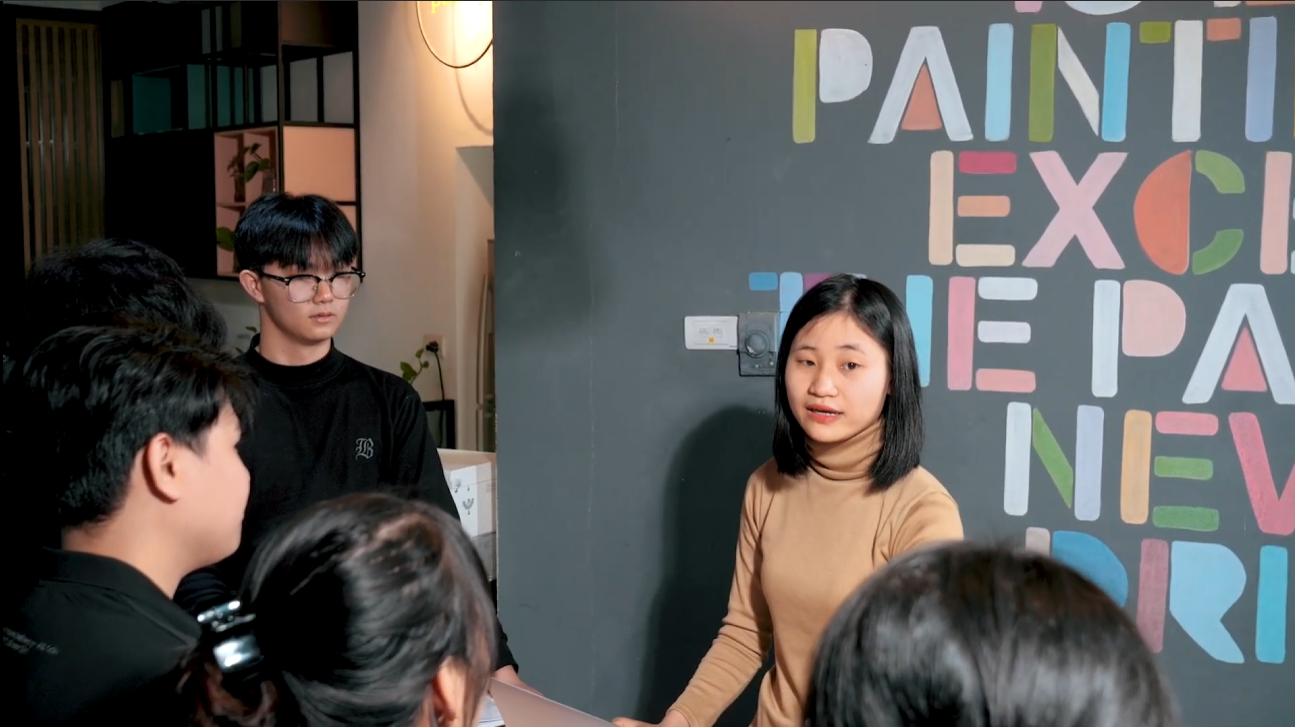
Nguyen Thi Luyen shares experiences on graphic design with his friends. Photo: Linh Pham/The Hanoi Times
In 2024, Luyen was hired by Foto Solution, a renowned company in the graphic design industry. “I’m happy as I can pursue the exact career I trained for. The work has opened up new opportunities and increased my income,” she shared.
Nguyen Quoc Anh, 3D Team Manager, Foto Solution, said in terms of skills, Luyen meets all the job requirements. “At first, she worked a bit slowly, but thanks to her hard work and determination, she now becomes the best performer among her peers. She has a high level of enthusiasm and creativity.”
Now with improved earnings, Luyen can cover her living expenses and medical treatment for her Hepatitis B, and support some for her younger brother’s tuition fees. She called the journey she has experienced is “unbelievable.”
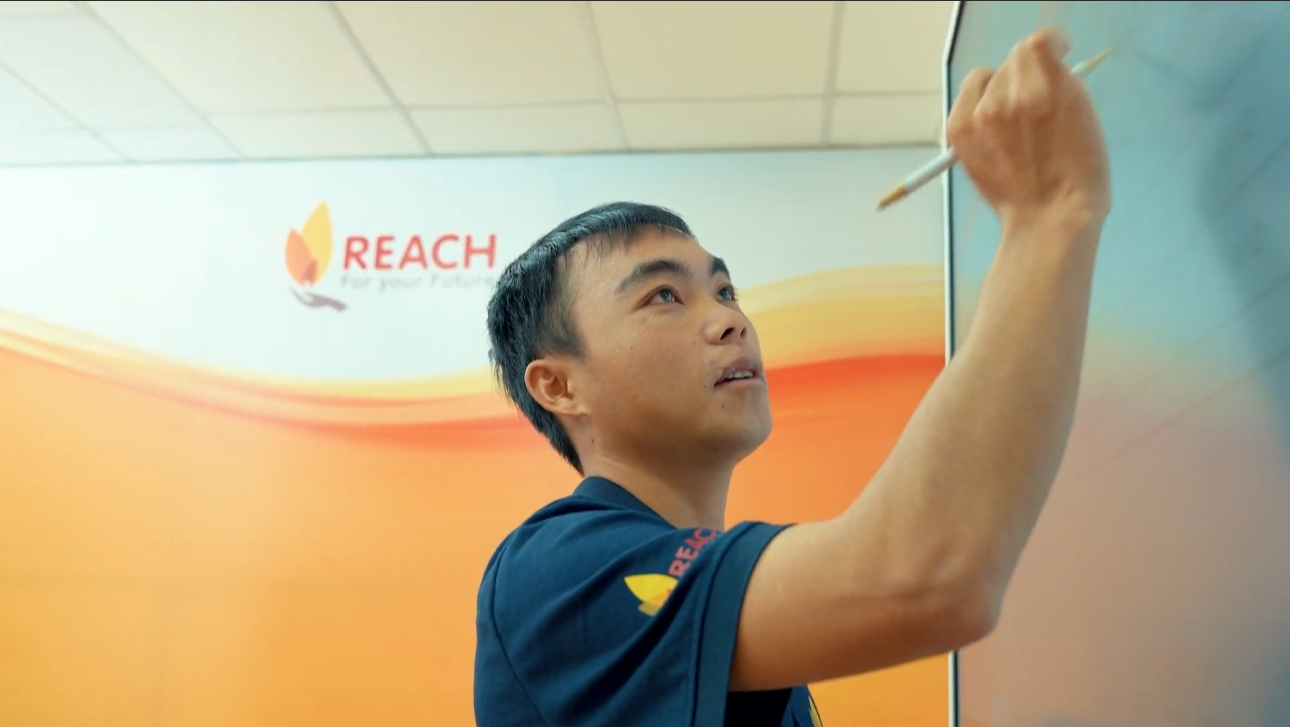
Thao A Phu, Digital Marketing Class K39, REACH Institute. Photo: Linh Pham/The Hanoi Times
Thao A Phu, Digital Marketing Class K39, REACH Institute, a boy from the most underprivileged area in the northwestern province of Yen Bai, who dropped out of school due to family’s financial struggles, feared that poverty and hardship may hold him back so he searched for free vocational training centers in Hanoi and his neighbors introduced REACH to him.
Among some options, he decided to enroll in Digital Marketing that taught him the process of creating a plan and launching a product into the market to build brand awareness. He has applied various techniques, such as producing short videos like advertisements for beauty care product sets or engaging content to attract customers on digital platforms.
“If you want to study Digital Marketing, it’s essential to showcase your abilities and have strong determination to achieve your goals,” Phu told The Hanoi Times his journey to conquer his digital dream. At school, teachers provided him opportunities to acquire real-world experience with businesses that help him develop essential skills. “The knowledge I gained has been incredibly valuable for my work, creating a brighter future for myself and improving my family’s life.”
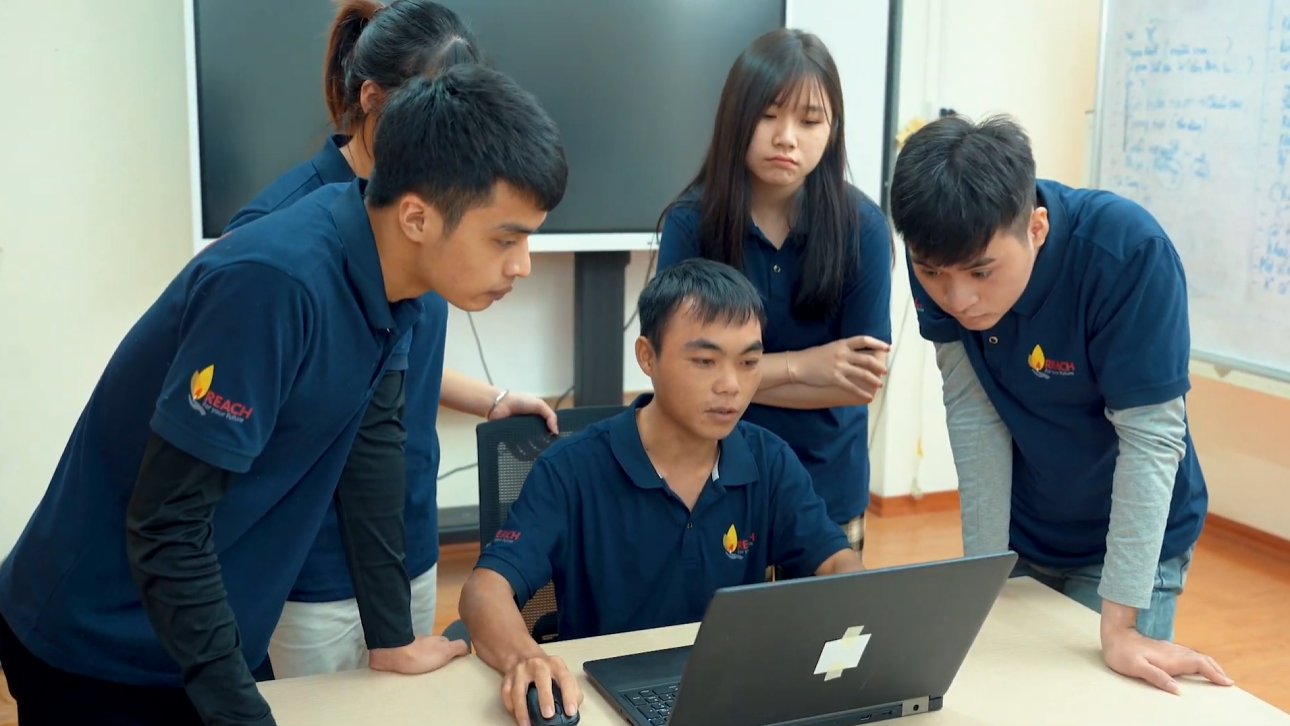
Thao A Phu discusses digital marketing plans with his team. Photo: Linh Pham/The Hanoi Times
According to General Director of Lenovo Vietnam Nguyen Van Giap, students like Truong Minh Phuc, Nguyen Thi Luyen, and Thao A Phu are testaments of reality-based training that is so helpful for their future career after short-term courses.
He said through the training program at REACH Institute under Lenovo-funded project, they aim to take solid steps in supporting disadvantaged youth by enhancing their digital skills and help them grow in the digital environment, especially young women. The program aims to bridge the gender gap in the workforce and promote diversity in the IT sector in the near future.
“We aim to empower young people to build confident careers in the digital economy. Lenovo is committed to expanding the program and partnering with others to enhance growth opportunities for Vietnam’s youth, driving positive change and future success,” Giap spoke with The Hanoi Times.
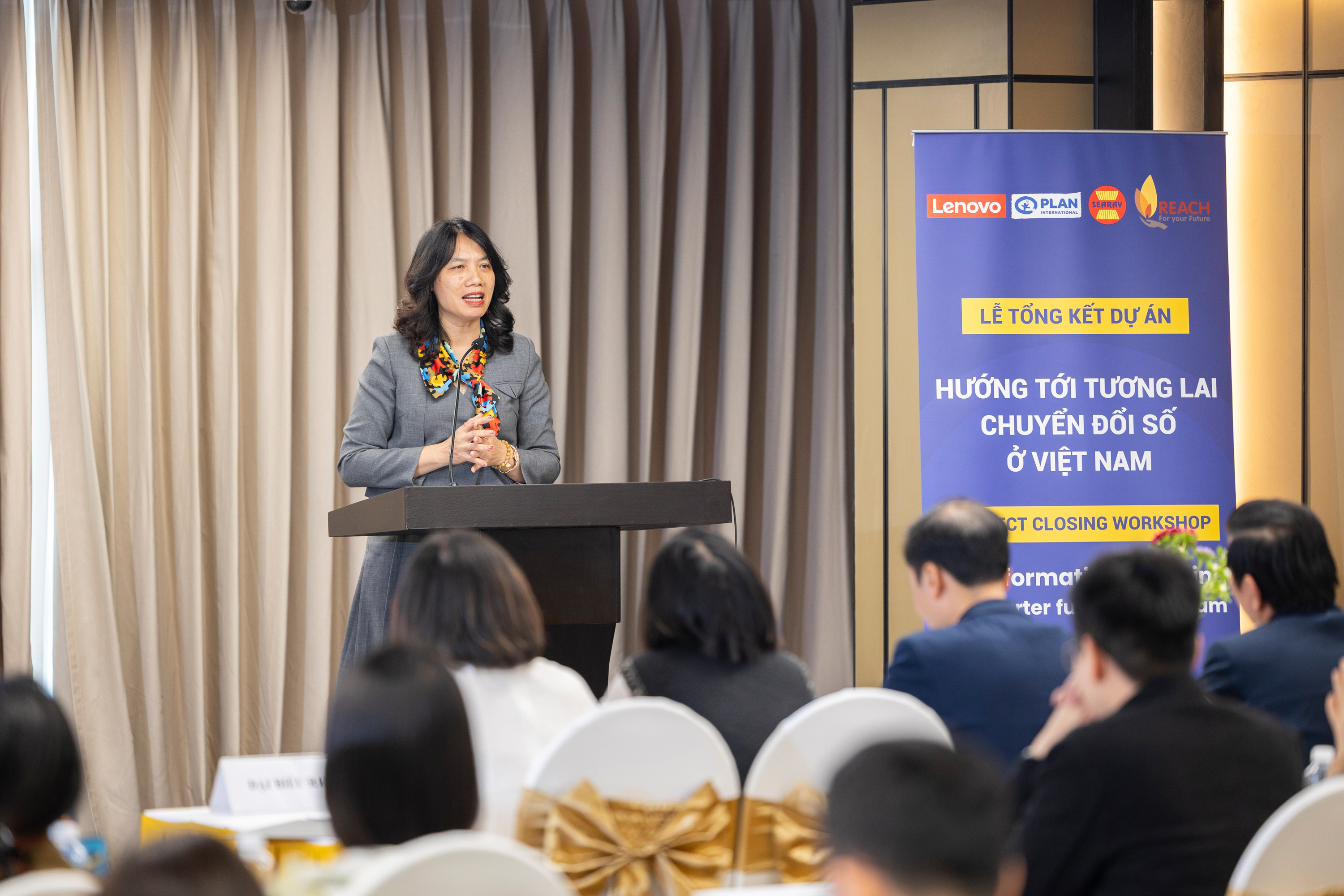
Le Quynh Lan, Country Director of Plan International in Vietnam, said the project exceeded expectations in just one year thanks to the REACH Institute and the dedication of youth, especially young women. It provided vocational training, soft skills, and challenged perceptions of women in tech.
She shared with The Hanoi Times: “The success of these youth will inspire others and promote gender equality. Thanks to the participants and Lenovo for supporting Plan International Vietnam’s mission for equal opportunities in training and job creation.”
Briefing on the project’s outcome, Pham Thi Thanh Tam, Head of REACH Institute, said that 85% of young beneficiaries have secured employment after training. “As digital transformation is a key driver of human development, unlocking the potential of Vietnamese youth, these youth are part of REACH’s mission, which has helped over 22,000 young people across Vietnam access education and build their futures,” Tam spoke with The Hanoi Times.
The project is part of Vietnam’s “Digital Higher Education" model, with some universities piloting the shift to modernize education that targets cost and time efficiency, improved educational quality, and sustainability and global integration.
The model aims to reduce costs by moving materials online and cutting down on travel expenses for students and education institutions while it offers flexible and personalized learning with greater access to resources and easier interaction with professors.
Vietnam’s initial pilot programs have shown promising results, but expanding the model requires investment in technology, faculty training, and student awareness. The ongoing efforts indicate potential transformation for Vietnam’s educational future.
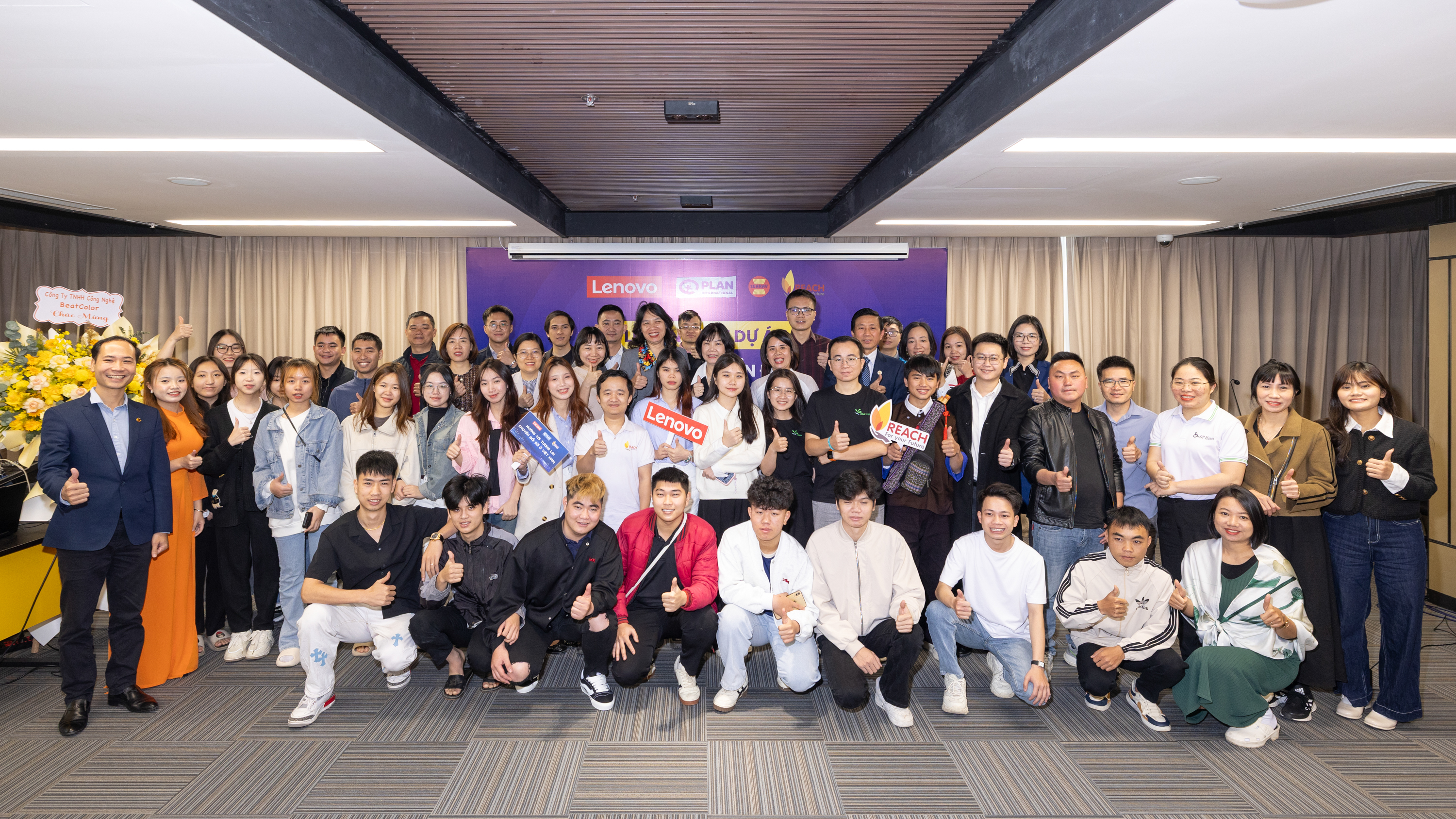
Participants at the ceremony closing the “Transformational Skilling for a Smarter Future in Vietnam” project funded by Lenovo Vietnam and implemented by Plan International Vietnam in partnership with REACH Institute.











